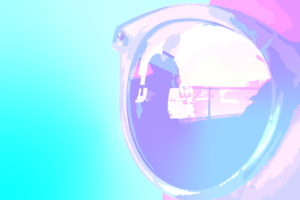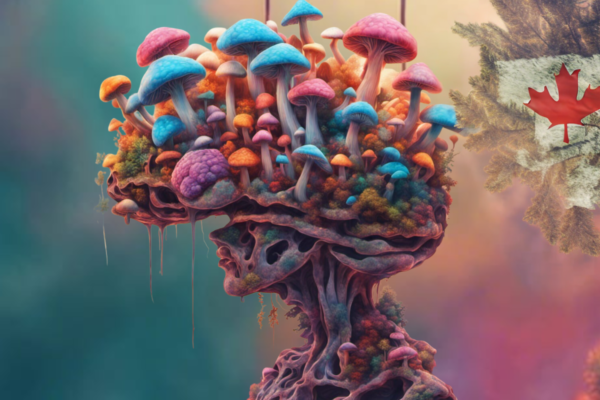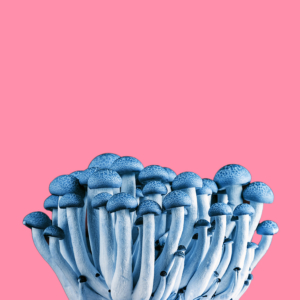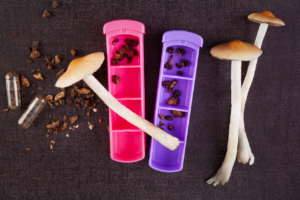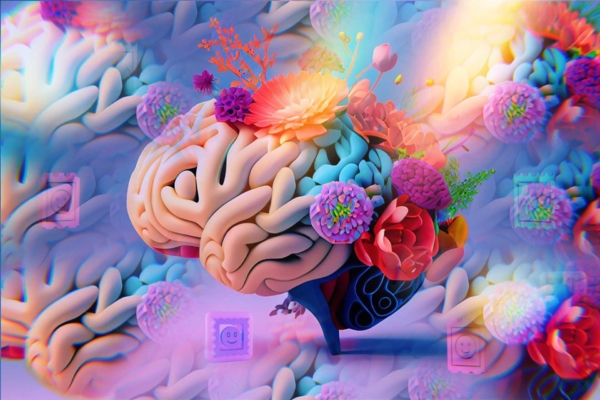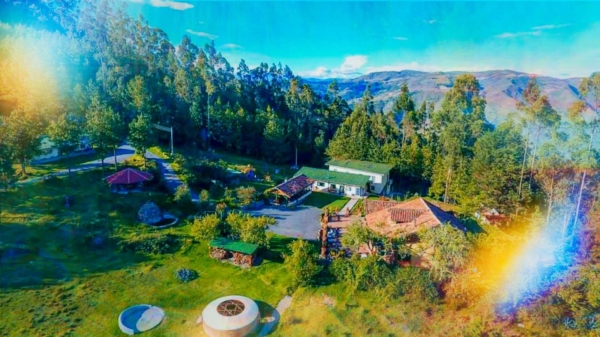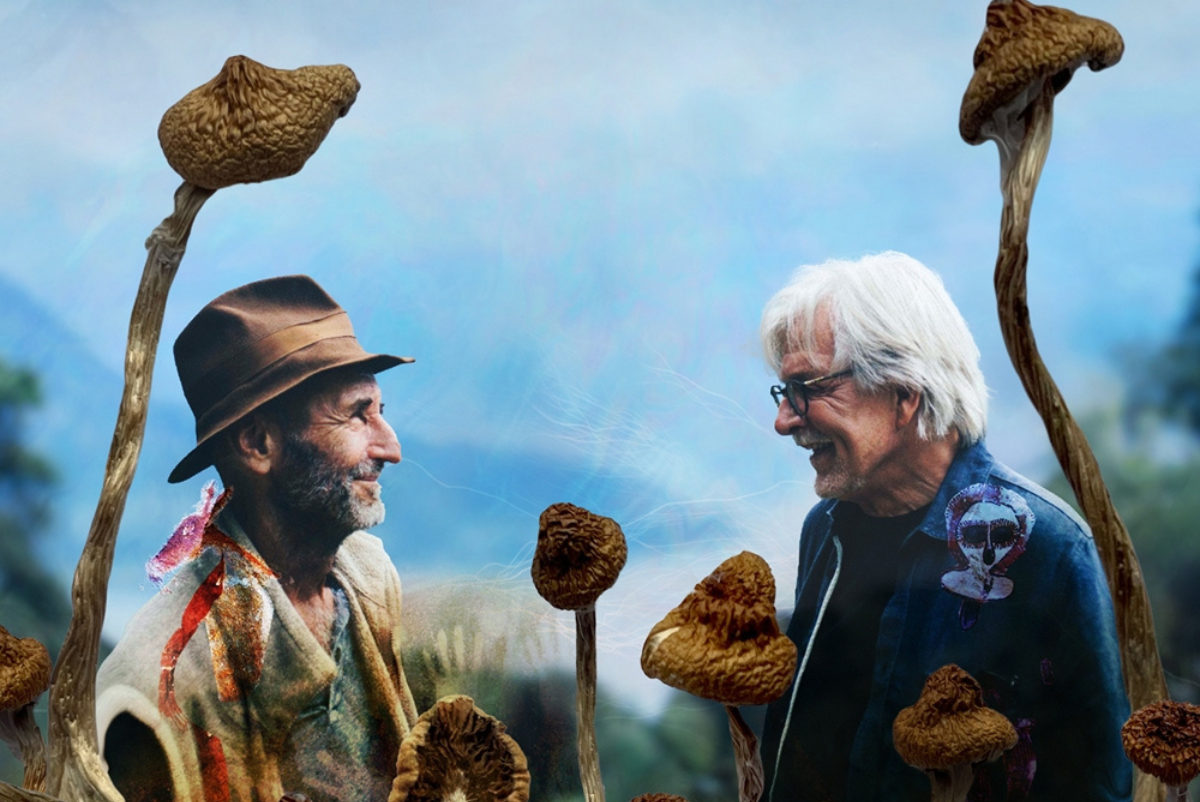
“The only Zen you find on tops of mountains is the Zen you bring there,” wrote author Robert M. Pirsig in his timeless novel Zen and the Art of Motorcycle Maintenance. But what if you pack magic mushrooms?
A Zen monk partners with a neuroscientist to find out in Descending the Mountain, the best psychedelic documentary since Fantastic Fungi, now available to stream on Gaia or rent on Amazon Prime.
Viewers are treated to a rare glimpse inside a psilocybin study bridging psychedelic science with spirituality; cameras capture a double-blind experiment at a Buddhist meditation retreat atop Switzerland’s Mount Rigi, where Zen master Vanja Palmers invites neuroscientist Franz Vollenweider to dose 20 experienced meditators, while 20 other meditators received a placebo.
It was known as the Felsentor experiment, and results were published in Nature in 2020. The paper is probably quicker to read, but certainly not as enjoyable as watching director Maartje Nevejan’s film, which offers stunning mountain scenery as cameras follow Palmers and Vollenweider conducting the experiment, reflecting on it afterwards, and sharing how their own psychedelic experiences shaped their lives.
“We were interested to know how meditation training enhances the effects of psychedelics,” Vollenweider says in the film.
His collaborator on the spiritual side of the psychedelic spectrum, however, is more interested in finding out if psilocybin can help spiritual seekers feel closer to the absolute oneness that lies at the heart of all religions.
“To have a real deep, spiritual, mystical experience, you could say is the high point of one’s life,” Palmers comments.
A Zen purist may scoff at the use of psychedelic drugs to achieve satori, but this particular Zen priest found a loophole: monks are allowed to consume medicine.
“I had the good fortune to spend the whole day with Albert Hoffman, the inventor through who LSD came into this world. He looked at me and said, ‘These sacred substances belong in the hands of meditation,’” Palmers recounts of a 2008 meeting with the late, iconic chemist. “I think this means that, ultimately, these substances are medicines, but not for the sick only. They are medicines for the healthy, if there is such a thing.”
Palmers was a healthy young man when he had his first LSD dose. “I experienced myself as a Buddha sitting in Full Lotus,” he shares. “I never meditated, I’d never really heard of or studied [Buddhism].”
The trip was so spiritually profound, he dropped all professional career ambitions, became a wandering hippie, and eventually ended up at a Zen monastery in California, where he lived for a decade as a Zen monk. Then, he returned to Austria and Switzerland to co-found two retreat centers, open to seekers of all faiths, like Sister Theresia, a Franciscan nun who discovered Zazen practice after a heart attack, and participated in the 2016 experiment.
Optimize Your Mental Health and Boost Your Mood & Concentration with Kon Kanna
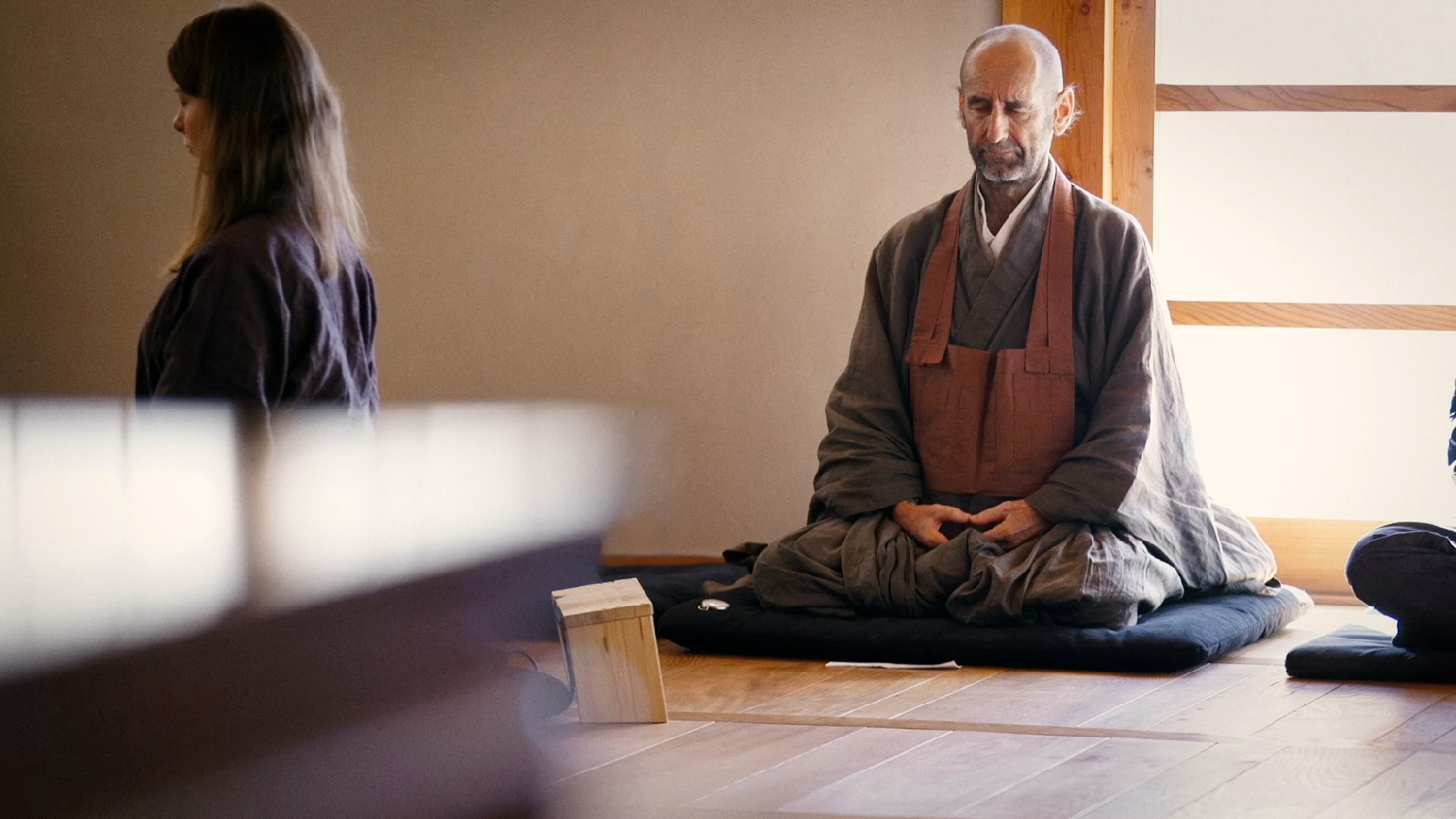
“I think that the experiences with the substances doesn’t create anything new, but is more like a midwife. It helps make deep experiences even more conscious,” she tells cameras in the film. “It’s sad that [psilocybin is] illegal, because it could help so many people who suffer. It’s a gift.”
Overall, the experiment went over unusually well; unusual because clinical studies always seem to note some kind of adverse side effects on at least a few participants, who report feeling negative emotions, like feeling fear and confusion. “Which we didn’t have,” reveals Palmers toward the end of the film.
In an essay reflecting on the experiment for MIND Foundation, Palmers writes, “It looks like people who are seriously into meditation can receive valuable pointers and gifts even from a one-time or occasional journey into the world of psychedelics. And it looks as if experience in meditation can be a precious asset in negotiating the sometimes high seas of such an adventure.”
The Zen master concludes, “If used respectfully and wisely, they have the potential to guide, help, and heal us, making us keenly aware of both, the beauty and mystery of everything – as well as the suicidal traps we humans find ourselves presently in, individually and as a global culture and society.”

